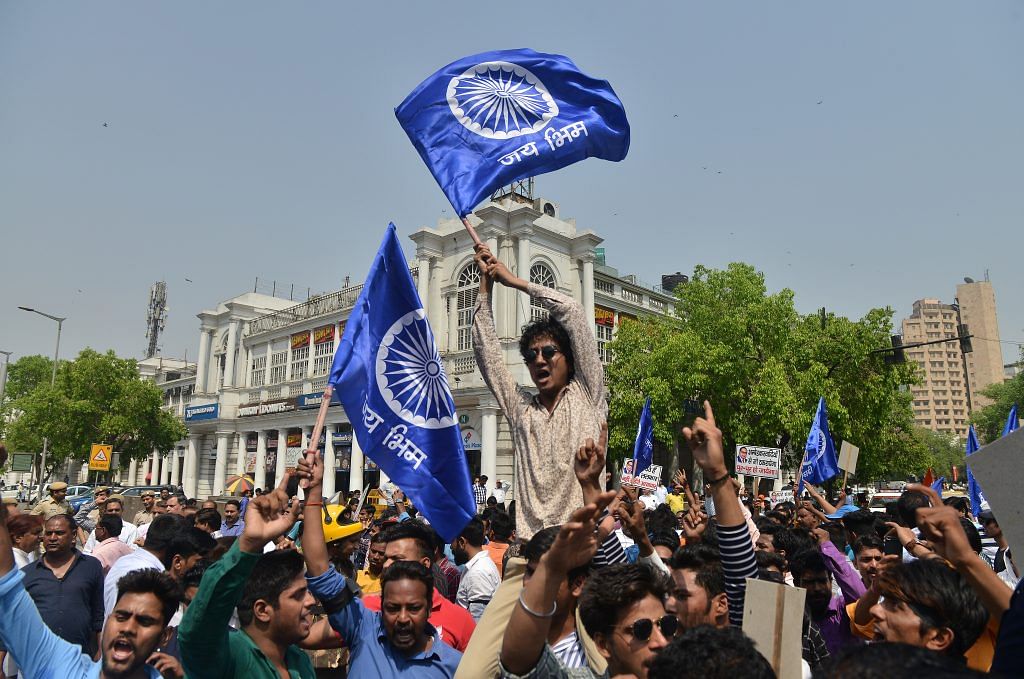The history of caste Hindus is a narrative of self-success which has been steeped in the very marrow of caste Hindu culture.
ThePrint is publishing articles on Dalit issues as part of Dalit History Month.
As a Dalit, I find history complicated. I link history with the ideas of who I am, where I belong, and, ultimately, where my home is, be that culturally, politically, or geographically. At university, some students could evoke nostalgia when speaking about home, while others could articulate their history with confidence.
But, to be honest, words like home, history, and belonging have always left me baffled as well as insatiated. For these are not issues that are neutral; not, at least, for me as a Dalit. Can I have nostalgia for a place and history that simultaneously rejected as well as raised me? Is this not the contradiction every Dalit faces?
That is why I want to go deeper for Dalit History Month. We are not just human beings made of flesh, blood, conscience, intellect, and emotions. We are also the products and consequences of our collective historical selves. My history is not just mine, but the powerful history of 200 million people.
This is living history, which bears testimony to centuries of indignities, shame, condemnation, untouchability, and deprivation. But, at the same time, it is also the history of an indomitable human spirit, assertion, achievement, conviction, and radical fights for social transformation. Dalit history is a large mirror to the historical processes of the subcontinent – it reflects not only our endurance but also the impunity that is at the heart of barbaric caste apartheid.
To deny either of these selves would be a lie.
In India, history in higher education and pop culture has typically allowed for caste Hindus to remain consciously ignorant about Dalit history. In the caste Hindu history, their achievements occur by merit, ignoring the violence against our people that has allowed them to succeed. Their narrative of self-success has been steeped in the very marrow of caste Hindu culture.
From the segregated caste bastis in villages, to the names for roads, shops, art, movies, media, journalism, judiciary, universities, and even airports: The vulgar display of caste hindu history and pride is the ultimate performance of impunity and privilege.
From sweet shops named after Agarwals, and airports named after Gandhis, to academic departments filled with Bhattacharyas, Chatterjees, and Sharmas. Even movies are chock full of virtuous larger-than-life characters named Singhanias, Oberois and Malhotras.
But while their names might be on the buildings and books, Dalit history asks: Who built the buildings? Who farmed the land? Whose blood is in the soil? And, most crucially, who took the credit instead? Is the theft of labour and life the real history of the caste Hindus?
This is where history translates into social conditioning. The repetition of caste Hindu history through surnames, cultural symbols, and news media houses is a dangerous process that will leave Dalit Bahujan and Adivasi communities without a home for our existence. For Dalits to fit into that history is to accept our erasure and to commit to a life of self-deception.
This is why Dalit history is crucial. By documenting our stories through art, writing, cultural symbols, and poetry, we can create a counter-social conditioning that is instrumental to embracing our authentic historical self. When we can be rooted in this authentic historical self, we can clearly fight to transform the realities around it. Dalit history, then, is just the oasis we need in the caste Hindu desert to create transformation. And that is why every April I will always celebrate Dalit History Month. #JaiBhim #JaiSavitiri
Sumeet Samos is a Dalit rapper based in New Delhi.
Read more from ThePrint’s Dalit History Month archives.
